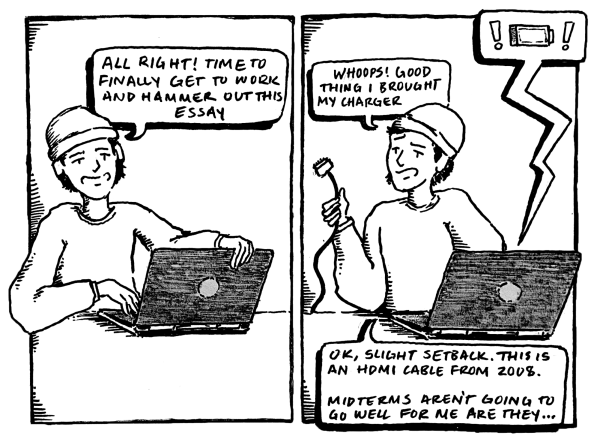Ohio Trans Health Care Policy Will Harm Trans Youth
Republican representatives Ron Hood of Asheville and Bill Dean of Xenia introduced the so-called “Protect Vulnerable Children Act” to the Ohio Statehouse on Feb. 11. While the name has positive connotations of protecting innocent youth, this could not be further from the truth.
The tricky title is just another attempt by congressional Republicans to both confuse liberals and persuade conservative voters into supporting a heinous, harmful bill. If passed, doctors could be charged with a third-degree felony for attempting to provide gender-affirming medical care to transgender minors.
Hood explained his reasoning behind introducing this bill stating: “My number one concern, by far and away, is the irreversible nature of these procedures. These procedures — most of them — lead to sterilization. And these things are not reversible.”
Let me start my opposition with some fact-checking: Most gender-related medical assistance for trans youth does not come in the form of invasive surgery, but instead through “puberty blockers,” which help delay characteristics that come with puberty by suppressing the body’s release of sex hormones. There are two major means of administering puberty blockers — an injection that one receives every three months or a small implant placed in the upper arm — and both can be provided in a doctor’s office, not an operating room.
According to the Seattle Children’s Hospital, taking puberty blockers should not affect your ability to have a baby in the future. The Mayo Clinic backs up this research by explaining that, “Use of GnRH analogues [puberty blockers] doesn’t cause permanent changes in an adolescent’s body. Instead, it pauses puberty, providing time to determine if a child’s gender identity is long-lasting. It also gives children and their families time to think about or plan for the psychological, medical, developmental, social and legal challenges ahead. If an adolescent child stops taking [puberty blockers], puberty will resume.”
Furthermore, the benefits of puberty blockers are both numerous and significant. According to the Mayo Clinic, these benefits include: improving mental well-being; reducing depression and anxiety; improving social interactions and integration with other kids; eliminating the need for future surgeries; and reducing thoughts or actions related to self-harm. According to a study by the Center for Disease Control and Prevention in Atlanta, about 1.8 percent of high school students identify as transgender — 34 percent of which have attempted suicide over the past year.
Alternatively, a different survey found that out of 20,000 transgender adults, the adults who received gender-related medical treatments in their youth were less likely to experience suicidal thoughts. Many doctors who provide treatments for transgender youth are well aware of these positive outcomes from treatments and consider this bill a breach of the Hippocratic Oath they must take. Dr. Scott Leibowitz, a psychiatrist and the medical director of behavioral health with the THRIVE Gender Development Program at Nationwide Children’s Hospital in Columbus, explained this by stating: “It’s a double standard to completely withhold a form of known beneficial medical interventions.”
Besides the abundant benefits that are experienced as a result of transition-related medical treatments and the serious negative consequences that are faced by those without access to these treatments, I oppose this legislation on the same grounds that I oppose anti-abortion laws: because they take away one’s autonomy. How someone chooses to alter their body should be completely up to them — not politicians.
I’m also upset and concerned because this bill was not created in isolation. This transphobic type of legislation has been appearing across the country. At least 10 other states have introduced similar bills: Colorado, Florida, Illinois, Iowa, Kentucky, Missouri, New Hampshire, Oklahoma, South Dakota and Tennessee. Thankfully, South Dakota’s bill was rejected on Feb. 10 and was even met with some Republican opposition. Hopefully, Ohio will follow in South Dakota’s footsteps, but in the meantime, we must do our part: Call your representatives and vote in 2020.


